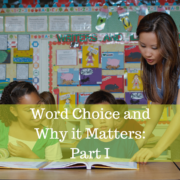The Value in Letting them Fall or Fail

It goes without saying that a strong support system at home can mean all of the difference when it comes to student academic success. Yes, parents play the most influential role when it comes to motivation and achievement. However, one flipside to the supportive and involved parent is when caring becomes coddling. Circumstances vary from family to family, and even from child to child within the same family—what helps one learner could hinder another. However, at a certain point, it becomes obvious, especially to educators, that some students have simply never been given the opportunity to struggle.
Given the opportunity to struggle? Why, you may ask, would any parent or teacher want students to experience such an opportunity? The reasoning is quite simple: children whose parents fix their every problem, mend their every snag, intercept their every challenge, become reliant instead of resilient. When speaking of mountains, hurdles, or obstacles, it is of course a natural response for parents to want to absorb or shoulder those struggles—to ensure that their child sails smoothly through their education. However, as Franklin D. Roosevelt so eloquently stated, “Smooth seas never made a skilled sailor.”
Roosevelt’s quote rings astoundingly true in an educational sense—a child who never encounters difficulties, challenges, or “rough waters” while learning will be ill-equipped when it comes to real world difficulties. Failure is not something that parents anxiously await; however, there is much to be said about the resilience of a young learner when he or she knows that failure is a necessary part of the learning process. Without the difficulties, a student will simply expect “smooth sailing.” Much like the inexperienced sailor, these learners will likely capsize at the first sign of rough waters ahead. Instead, parents must be willing to, however reluctantly, stand aside and allow their children to navigate the obstacles on their own. This is no easy feat—it is against all natural inclinations to watch their own children struggle. But, in these moments, it is important that parents find comfort in the fact that these “failures” or challenging times are securing a child’s ability to recognize self-advocacy, independence, self-reliance, responsibility, self-confidence, and motivation. The gains are truly infinite when children learn to stand on their own two feet.
Now, of course, there will always be occasions when a student may need help to keep his head above water. As a parent, you will recognize these instances in your child’s education better than anyone else. When this happens, step in as the experienced captain or simply provide a little bit more of a guiding light. But remember, as they say, experience is the best teacher, and the worst experiences often end up teaching us the greatest lessons.




